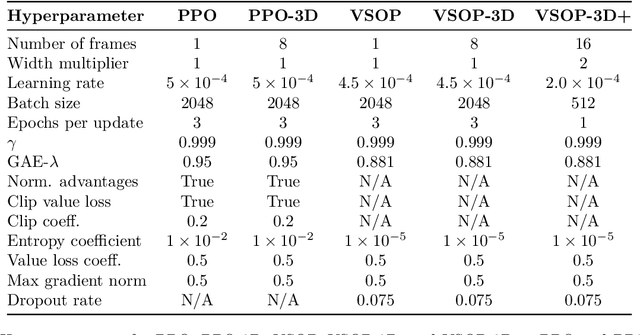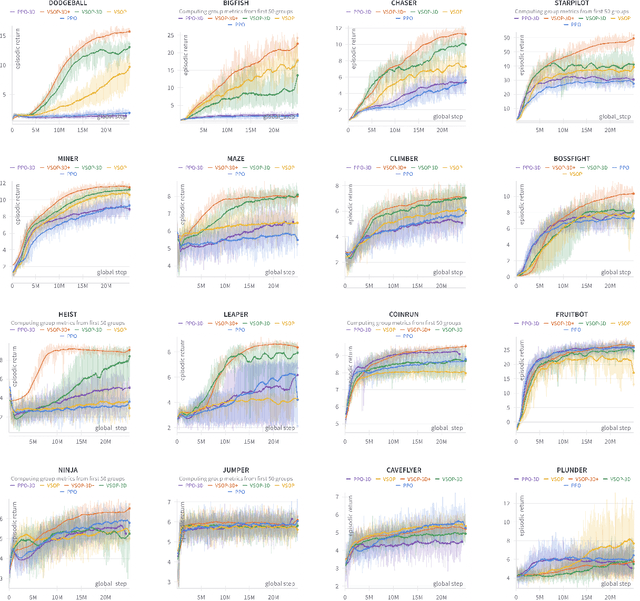Improving Generalization on the ProcGen Benchmark with Simple Architectural Changes and Scale
Paper and Code
Oct 13, 2024



We demonstrate that recent advances in reinforcement learning (RL) combined with simple architectural changes significantly improves generalization on the ProcGen benchmark. These changes are frame stacking, replacing 2D convolutional layers with 3D convolutional layers, and scaling up the number of convolutional kernels per layer. Experimental results using a single set of hyperparameters across all environments show a 37.9\% reduction in the optimality gap compared to the baseline (from 0.58 to 0.36). This performance matches or exceeds current state-of-the-art methods. The proposed changes are largely orthogonal and therefore complementary to the existing approaches for improving generalization in RL, and our results suggest that further exploration in this direction could yield substantial improvements in addressing generalization challenges in deep reinforcement learning.
 Add to Chrome
Add to Chrome Add to Firefox
Add to Firefox Add to Edge
Add to Edge